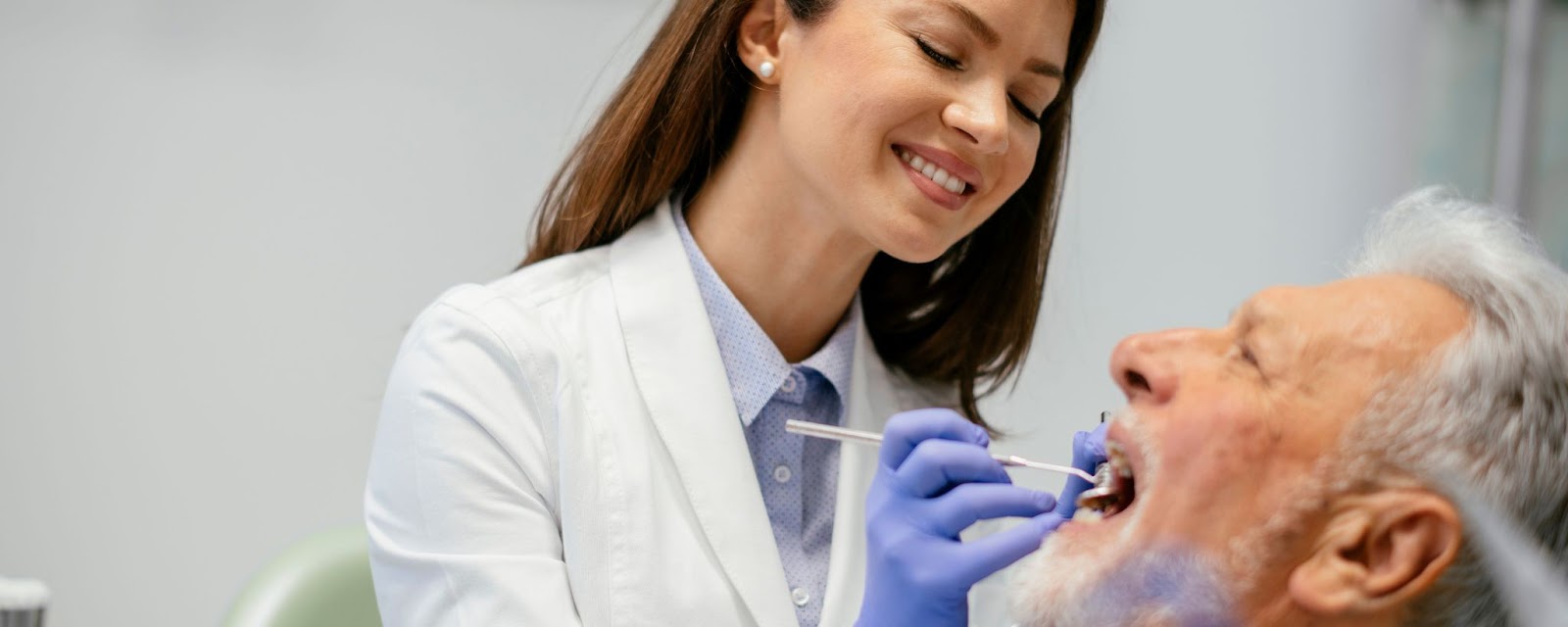Many patients wonder why no dairy after dental implants.
Milk, cheese, and yogurt are often thought of as healthy options, but they can actually slow down your recovery after oral surgery.
If you're getting dental implants or just had them placed, it's good to know why dairy isn't the best choice and what you can eat instead.
This info can really help your body heal better and support your new implants.
At Junction Family Dental Care, we want to help every patient understand how to take care of themselves after an implant procedure.
We will guide you on what foods to avoid and what you can safely enjoy.
After your surgery, your dental implant site is very sensitive, and even with a little bleeding.
So, everything you eat comes into contact with the healing gums and bone.
Foods made from milk, especially those with added sugar or thick textures, can get stuck around the surgical area.
Let's look at some specific issues and why this can trap bacteria and lead to irritation or infection.
Dairy can make bacteria levels go up in your mouth.
Your surgical site is already vulnerable, so having more bacteria around can increase the risk of infection and slow down healing.
Some dairy products create acid in the mouth.
Acid can irritate the healing tissues around the implant and may disrupt the formation of a proper blood clot.
After surgery, your stomach tends to be more sensitive from the anesthesia and meds.
Dairy can sometimes make you feel nauseous or lead to vomiting, which can put pressure on the healing implant area.
Some studies suggest that dairy can trigger inflammation in certain people.
Since your body is already dealing with inflammation during the healing process, adding more can just make swelling or discomfort worse.
Most dentists suggest that you avoid dairy for the first 3 to 5 days after your implant procedure, just like other food restrictions during this time.
Why? In recovery, your mouth is more likely to get swollen, irritated, or infected.
After this period, you can usually start eating small amounts of dairy, unless your dentist tells you otherwise.
Always follow your dentist’s advice, as every situation is different.
If you want to know what your implant site should look like while healing, check out our guide: What Should a Tooth Extraction Look Like When Healing?

For expert advice and personal care in Toronto, Junction Family Dental Care is here to support you at every step of your dental implant journey.
Healing doesn’t mean you have to starve or munch on bland food.
Instead of regular dairy, check out these yummy and nourishing alternatives:
Also, at Junction, we always remind patients to steer clear of straws while healing.
Using straws can mess up your blood clot and lead to issues like dry socket.
For more tips on what to eat after oral surgery, read the guide on meals 24 hours post-extraction.
Dairy isn’t the only thing you should skip:
1. Stay away from spicy or acidic foods because they can hurt the surgical area.
2. Do not drink alcohol or soda, as they can slow down your healing and increase the risk of infection.
3. Avoid smoking, which can lead to implant failure and dry socket.
4. Skip hard or crunchy foods like chips, nuts, or raw veggies, as they can harm the site.
Every patient’s journey with implants is different, but here are some common questions.
Right after your surgery, your implant site is sensitive.
Dairy products can hold onto bacteria, cause swelling, and may interact with medications, which can slow down healing and increase risks.
Most dentists suggest avoiding dairy for at least the first 3 to 5 days after your implant procedure.
Not all dairy is equally dangerous, but you should avoid thick, sugary, or hard-to-chew dairy.
Once your dentist says it’s safe, you can try low-fat, low-sugar, and non-sticky dairy.
Of course.
Plant-based milks (like almond or soy), yogurts, and cheeses are usually safer during your healing period because they are gentler on your mouth and less likely to trap bacteria.
Dentists may have different opinions.
Some focus on only certain dairy products, while others are more careful.
At Junction, we follow the latest advice and customize our guidance for each patient.
In short: Avoid dairy after getting dental implants.
Dairy can slow down healing, irritate your mouth, and raise the risk of infections.
Skipping dairy for a few days is a small price to pay for the long-term benefits of a strong, healthy implant.
At The Junction Family Dental Care in Toronto, we don’t just place implants; we support you through every step.
In the meantime, you may also like: